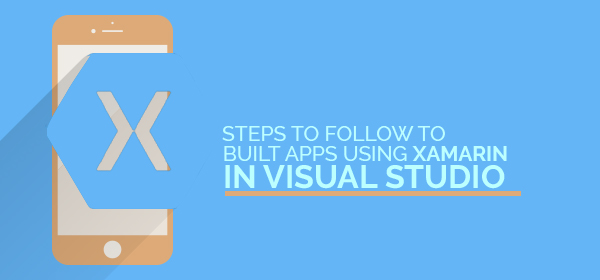Estimating the cost to develop your app is an imperative step. It is one of the significant factors that determine the success or the failure of your end product Every business firms are rushing to convert their great ideas into apps. Those with apps are gaining more and those without are missing them.
Let’s go through the diverse factors determining how much it costs to make an app in India. Creating an app is possible but making it “the unique one” is a challenging task. One should know about the cost and efforts to invest during each stage of the process. Quick and acute responses will determine the reach and success of your app.
How Much Does it Cost to Develop an App ?
A common man could end up with an answer to this question like “High-quality apps evolve from well-reputed investors”. At the same time, “Latest developers could not make a great app so far”. There are many more claims about cost estimation and quality of apps which are just gulped as if by many people.
But this is not the actual way of understanding an app or firm. Even many companies allege about their high- quality, sometimes users could reach a state of huge money loss by working with them.
Key Factor for App Development Cost in India ?
The app development cost in India is influenced by several key factors. Firstly, the complexity of the app plays a major role; a simple app will cost less than a complex one with multiple features and functionality. Secondly, the platform chosen for development, whether iOS, Android, or cross-platform, can significantly impact the cost.
Thirdly, the geographical location of the app development company and their expertise level also influence the price. Lastly, the time taken for development is directly proportional to the cost; a swift development process would require more resources, thus increasing the app development cost.
Reason? Improper cost estimation
To cement the statement, let’s check out the cost to develop an app in various countries.
| North America | UK | Australia | India | Eastern Europe |
| $20 to $250 per hour | $35 to $175 per hour. | $35-$150 per hour. | $10-$75 per hour. | $20-$110 per hour |
Different countries have different costs of app development. The app making cost in India wildly varies from UK or North America. These visible changes are because of varying reasons that concern app development.
Let’s dive into the factors that affect the cost to develop an app as a whole.
- Cost of app features: Simple Vs Complex
- Platforms
- Types of apps and their cost
- The development team and their Proximity
- The profitability of an app
- App maintenance costs
- Popular categories and their costs
#1. Cost of App Features: Simple Vs Complex
The complexity of various app features adds up your app development costs. Some apps are those basic ones with simple features. An app with complex features has a higher cost of development. Implementing certain features make the app complex or simple.
The basic features, their approximate development time, and their costs are tabulated below:
| Features | Cost | Time |
| User Login | $1400 – $2100 | 20-48 hrs |
| Profile creation | $2,400 approx. | 15 – 20 hrs |
| Profile editing & completion | $1300 – $2700 | 37-72 hrs |
| Search | $250-$500 | 13-18 hrs |
| Chat & Messaging | $2850-$7550 approx. | 118-165 hrs |
| Push notifications | $500 – $600 | 20 – 32 hrs |
| Basic in-app purchases | $750-1,500. | 30 hrs |
| Payments | $2,000 – $2,600 | 50 – 65 hrs |
| Multi-language support | $350-$750 | 15-20 hrs |
| User management | $800 – $1,500 | 20 – 37 hours |
| Custom push notifications | $400-$800 | 8-14 hrs |
Presently, most apps include additional features to increase a strong customer base. Such features gauge more traffic and at the end amping up conversion rates. These add-ons increase development costs for app makers too. Some of the complex features, time consumed and their cost are given below.
| Features | Cost | Time |
| Geolocation | $1,250-2,500 | 32-50 hrs |
| Google Maps integration | $1,300-$1,600 | 20-40 hrs |
| Ads | $1,000-2,500 | 20-50 hrs |
| Video/Audio streaming | $4,500-$7000 | 72-140 hrs |
| Data encryption | $650 – $1,000 | 16 – 24 hours |
| Sensors usage | $500-$1,000 hrs for each one | 16-20 hrs for each |
| Payments integration | $2,500 to $5,000 | 60-78 hrs |
| Offline mode | $1,000-$3,500 | 40-80 hrs |
#2. Platforms
Another factor is the different platforms on which you want your apps to be developed. Most people would consider iOS and android app development platforms. But there are more options. This can impact on front end and back end app creation costs. Each platform has different characteristics and can incorporate a variety of features.
| Platform | Features | Cost |
| iOS | With a highly intuitive and sophisticated interface, iOS development often needs detailed planning on features. They have app specifications that determine the cost of development. | Approximately $30000 to $80000 |
| Android | Android developers in India focus on getting maximum exposure to the app. So feature rich apps are always in demand. | Approximately $5,000 to $40,000 |
| React native | Provide a seamless cross-platform with features of both iOS and Android. The cost may vary following the requirements of functionalities. | $15 to $25 per hour |
| Xamarin | Apps that run across multiple platforms. Xamarin provides native functionalities along with testing and automating features. Cost can be reduced as it doesn’t need separate developers. | $ 20 to $50 per hour |
| Flutter | Flutter is a known portable UI toolkit that provides excellent features at a reduced cost. And yes of course, the cost varies with the complexity of apps. | $1,000 to $5,000 |
Apart from the above said platforms, there are many other options like Accelerator, Lazarus, Live code, etc. An unavoidable fact is that the development costs of platforms vary per the features, complexity, and other add-ons the firm requires in their app . But it is a factor that builds the reach and usability among users.
#3. Types of Apps and their Cost
Apps are of three types according to the features and the technology deployed.
- Native apps
- Web Apps
- Hybrid apps
Native Apps
Native apps are created for a single platform. They can be said as a native Android app and native iOS app, as they specifically work on Operating systems. Its features and functionalities are set nonexchangeable. The codes cannot be reused. Thus, efforts to maintain the code bases increase the cost affairs.
Cost: – About $100,000
Web Apps
Around 80% rely on web apps than websites. These apps enhance their experience on internet activities. It can be accessed via web browsers and can perform functions in the device the user engages with. Comparing with native apps these apps have no burden of customization under the platform or OS. This same feature ensures reduced development costs.
Cost: – $500 and $5,000 (approx.)
Hybrid Apps
Heard of hybrid seeds? Features of two different seeds incorporated into one possessing both their features. These hybrid apps carry features of native and web apps, predominantly look like native apps. They can be rapidly loaded, created quickly and economical.
Cost: – $10,000 and $50,000 (approx.)
#4. The Profitability of an App
Different mobile apps deploy various methods to monetize the app. This ensures profit gain for their laborious tasks during development.
Free apps
We often download many free apps You start sharing the app and its features unknowingly in your blogs, social networking sites, etc.
Business firms can expand their users by providing free apps. But later, the same can be used to sell an idea or product. There are many free android apps in India including Sysic India, True caller, etc.
Paid apps
Apps are given a price tag and users can instantly avail features of the app by paying the amount. You can get next-level features by paying more.
These apps are made for compromising with the development cost. It is now widely used in India like Nova Launcher Prime, Pocket casts, etc. These apps make both app developers and users happy.
Freemium apps
This is where users think about whether to continue or stop using the apps. The features of the content experience makes some users continue paying for it to unlock additional features and some discontinue.
The number of premium users can make developers conscious of updating or working on the same features for a more user-friendly experience. Spotify, Gaana, etc are some of the apps which are widely accepted premium contents.
E-commerce apps
Most evolving strategy of monetization. Businesses with e-commerce apps gain more as it ensures customer satisfaction with instant pay and buy facilities.
Amazon, Flipkart, Myntra, etc are some of the popular e-commerce apps in India. They have websites too with about 150 million or more registered users.
#5. Development team and their Proximity
We all know about the adage ” Unity is strength”.. Hiring a team not only helps in getting things done fast, each members of the team can leverage their experience and expertise for complex solutions.
But, how much does it cost to hire a app development team?
| Personnel | Duties | Cost |
| Business Analyst | Monitor every aspect of the app before proceeding development cost | $25+/hour |
| Mobile App Engineer | They are the platform dealers. They control the development phase by following all technical aspects and publish the app. | $20+/hour |
| UI/UX Designer | Eye-catching designs make people go on with the app. Good designs can expect good outreach. | $25+/hr |
| QA Engineer | Quality assurance engineers look upon the aspects like stability, performance, the load of an app etc. They make sure about the UI to be interactive and engaging. | $20+/hour |
| Project Manager | He controls and coordinate the work of the entire team. His management throughout can be helping in the appropriation of development costs. | $25+/hour |
There can be more personnel and can differ from companies to companies. The proximity is a great factor of cost where the team could together bring out successful app stories.
Outsourced Vs Local Development
| Outsourced development | Local development |
| Companies hire teams at reasonable costs from different places | Some team up with personnel in physical proximity |
| Foreign developers from an international team | Remote teams from in-house or local sources. |
| Greater talent and excellence | Better involvement and focused workforce |
| Time zones could have adverse effects | Face to face dealings |
| Lower rates and reduced development costs | More expensive and higher cost investment |
| Cost (per hour): – $25-$45 | Cost (per hour): – $20-$50 |
#6. App Maintenance Costs
It is an unavoidable area of service that shall be followed by small to big-budget apps. This stage costs about 15-20% of the original cost of development. It is essential because of new device releases, functional needs which should be done promptly.
As we regularly update mobile and computer software, apps also need updates making it the latest. For example, if your app costs $10,000 to develop, then your app maintenance cost would be about $2,000 a year. Some of the important things taken care of are hosting databases, Bug fixing, Code optimization, etc.
#7. Popular Categories and their Costs
As we said that complexity and other requirements of an app determine its cost, the category under it falls too is considered.. Below are some of the popular categories of apps and their development costs.
| Category | App | Cost |
| Online shopping | Amazon | $3000 to $15000 |
| On-demand grocery delivery | Big basket | $10,000to $30000 |
| Taxi & Cab booking | Uber | $30,000 to $35,000 |
| Food delivery | Swiggy | $6500 to $11,000 |
| Social media | $5000 to $17,000 | |
| Hotel bookings | Booking.com | $5000 to $15000 |
| Second-hand products | OLX | $5000 to $10000 |
| Health & fitness | Home Workout | $15,000 to $30,000 |
| Learning | Duolingo | $15-$40 per hour |
| Travel | MakeMyTrip | about $103,600. |
| Entertainment | Gaana | $20-$40/hour |
| Payment services | Paytm | approx. $16,000 |
| Gaming | Teen Patti | 3 lakhs+ (approx.) |
| Utilities | Justdial | $10,000 to $40,000 |
Many other factors decide the cost to develop an app and every app developer take care of knowing the pulse of their target audience and constantly working for them
Redbytes App Cost Calculator
Redbytes App Cost Calculator provides a detailed cost estimation of your app based on your requirements. The app lets you record your inputs on the above factors and get an elaborate cost breakdown in minutes.
A simple login is required and you can obtain an 80% accurate cost estimate & the complete timeline of your app development. There is an option to reduce the end cost if you feel overpriced.
Besides, the App Cost Calculator allows you to have a hassle-free hiring process. You can hire permanent employees on your payroll or skilfull part-time employees for your firm. Conduct budget-friendly recruitment and book meetings instantly with the App Cost Calculator.
Frequently asked question?
How much android app development cost in India?
The app development cost in India varies greatly depending on several factors such as complexity, features, and the experience level of the developers. On average, the cost of developing a simple Android app in India can start from around $5,000 and can go up to $40,000 for more complex applications.
However, these figures are only estimates and the actual costs can be higher or lower. It is always advisable to get a detailed quote from app cost calculator, Redbytes app development company to get an accurate estimate of the costs involved.
How much iOS app development cost in India?
The iOS app development cost in India varies widely depending on the complexity of the app, its features, and the experience of the development team. On average, a simple app with basic features can cost anywhere between $30000 to $80000.
However, for more complex apps with advanced features and sophisticated design, the cost can go up to $15000 or more. It’s important to remember that this is just an average estimation, and actual costs can fluctuate based on several factors. It is therefore advised to get a detailed quote from our app cost calculator an accurate understanding of the iOS app development cost.
How much React native app development cost in India?
The cost of React Native app development in India can vary significantly based on several factors. These include the complexity of the app, the number of features, the experience level of the developers, and the timeline for completion. However, on average, the cost can range anywhere from $15 to $25 per hour for a mid-level developer. Keep in mind, this is a rough estimate and actual costs may vary. Get detailed quote from our app cost calculator an accurate understanding detailed make an informed decision.
How much Hybrid app development cost in India?
Wow! You wouldn’t believe how affordable hybrid app development is in India! It’s like a tech enthusiast’s dream come true! The cost typically ranges from $10 to $30 per hour. So if you have a complex project that takes around 500 hours, you might end up paying anywhere from $10,000 to $50,000. And the best part? You get high quality, versatile apps that work seamlessly across different platforms. It’s a win-win situation! So if you’re thinking of developing a hybrid app, India is definitely the place to go!
Conclusion
Countries like India are very much working and walking along with the latest trends of app development. Outsourcing in a country like India can result in inexpensive and quick app development. The three major hotspots of India, Bengaluru, New Delhi, and Hyderabad has 55% of all Indian Android Developers and 45% of iOS developers.
However, it is indeed a challenging task to estimate the total cost of developing an app in India. With a proper cost estimate, an app developer can foresee future aspects and develop accordingly. Redbytes have developed an App Cost Calculator that app creators can use to translate their ideas into awesome apps.
If you can estimate the cost of each stage of app development following your needs and requisites, you tend to end up with better mobile app development results.















